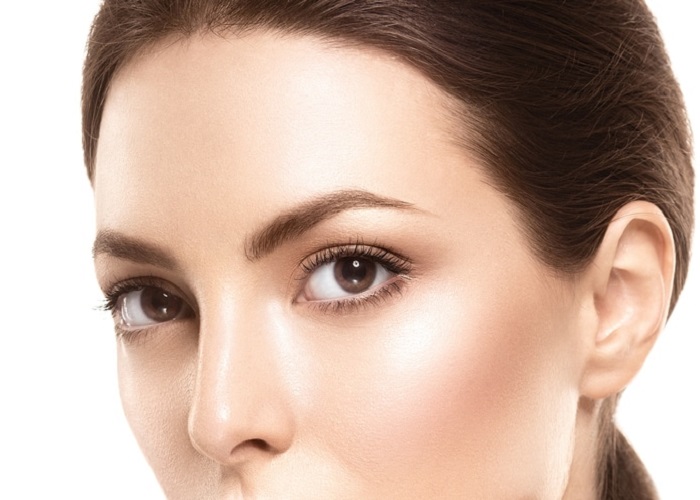If you or someone you know is dealing with Thyroid Eye Disease (TED), exploring treatment options is crucial.
One such treatment gaining attention is Tepezza.
In this comprehensive guide, we’ll delve into the risks and benefits of Tepezza, helping you make an informed decision about its suitability for managing TED.
What Is Thyroid Eye Disease (TED)?
TED, aka Graves’ eye disease, is an autoimmune disorder affecting the eyes’ surrounding tissues.
It is caused by a hyperactive thyroid gland, which produces antigens that attack the tissues around the eyes. These antigens cause inflammation and swelling, which can lead to the symptoms of TED.
Symptoms of TED can either be mild or severe. Some of the most common symptoms are as follows:
- Eye bulging
- Double vision
- Painful, red, and swollen eyes
- Dry, gritty, or burning eyes
- Sensitivity to light
- Difficulty closing the eyes
What Is Tepezza?
Tepezza is an FDA-approved drug for treating Thyroid Eye Disease. Approved in January 2020, this drug is the only prescription drug available for the treatment of TED in adults.
It is a monoclonal antibody that works by neutralizing a protein called insulin-like growth factor 1 receptor (IGF-1R). This protein is involved in the inflammation and swelling that occurs in TED. By blocking IGF-1R, Tepezza can reduce inflammation and swelling, improving the symptoms of TED.
The drug is administered through an intravenous infusion.
What Are the Benefits of Tepezza?
Clinical trials have shown that Tepezza significantly improves proptosis and diplopia in TED patients.
- Over 80% of patients taking Tepezza had a reduction of at least 2 mm in eye bulging at twenty-four weeks of treatment.
- 58% of patients had complete or significant improvement in double vision by six weeks.
- The benefits were seen regardless of prior steroid use or smokers vs non-smokers
- Tepezza led to faster and greater improvements compared to intravenous steroids, which was the previous go-to treatment.
Overall, Tepezza can improve the quality of life in TED by reversing disfiguring eye bulging and impaired vision that often worsens over time.
What Are the Risks and Side Effects?
The side effects of this drug affect about 4% of patients. While Tepezza is effective for TED, it also comes with some potential risks:
- Infusion Reactions – Some patients may experience headaches, nausea, fatigue, or muscle cramps during the infusions. These reactions are usually managed by pre-medicating with corticosteroids and monitoring vitals during the infusion.
- Hearing Loss – Tepezza may lead to hearing loss in some patients. According to a 2021 study, 65 percent of patients reported hearing issues as opposed to 10% mentioned in the clinical trials. Hearing is tested before starting treatment and monitored during the course.
- Liver Toxicity – Tepezza can increase liver enzymes in some patients. Regular blood tests help monitor this.
- Muscle Spasms – Hand or foot muscle spasms are another common side effect of the Tepezza drug. You might be given Calcium channel blockers to treat this.
Tepezza can also cause changes in the levels of certain hormones in the body, which can lead to other health problems.
Tepezza is not recommended for:
- Those with uncontrolled hypertension and inflammatory bowel disease (IBD)
- Children
- Pregnant or breastfeeding women
- People with a history of severe allergic/infusion reactions to Tepezza
It is important to note that there are lawsuits related to Tepezza.
In August 2022, individuals who received Tepezza shots and then suffered hearing issues and tinnitus started suing Horizon Pharmaceuticals, the manufacturer of Tepezza. The plaintiffs in the Tepezza lawsuit claim that Horizon failed to warn them about the side effects of the drug.
The lawsuit is still in its early stages as lawyers across the U.S. are welcoming claims from affected individuals.
How Effective Is Tepezza?
Tepezza is effective in reducing the symptoms of Thyroid Eye Disease.
In clinical trials, patients who received Tepezza significantly improved their eye symptoms compared to those who received a placebo. The improvement was seen in both the eyes’ appearance and the eyes’ functioning.
Patients who received Tepezza also had a reduced need for surgery to correct the eye problems caused by TED.
Commonly Asked Questions
Q1: What is the difference between Tepezza and other TED treatments?
Several treatment options are available for TED, including corticosteroids, orbital radiotherapy, and surgery.
Corticosteroids can effectively reduce inflammation and have side effects such as weight gain and bone loss. Orbital radiotherapy can be effective in reducing inflammation and shrinking enlarged eye muscles. Still, it can also have side effects such as dry eyes and cataracts.
Surgery is typically only used for severe cases of TED that do not respond to other treatments.
Tepezza is a targeted therapy that specifically targets the IGF-1R protein, which is thought to play a role in the development of TED. This makes Tepezza a more specific and potentially more effective treatment option for TED than other treatments not specifically targeted to IGF-1R.
Q2: How long does Tepezza treatment last?
Tepezza treatment typically consists of eight infusions, administered once every three weeks. This means the entire course will last about five months.
However, the amount of Tepezza given to each individual will vary as per the person’s weight. Each infusion takes about an hour to complete. The medication is only available through a restricted distribution program and can only be administered by certain registered healthcare providers.
Q3: Does insurance cover Tepezza?
Insurance coverage for Tepezza varies depending on the insurance provider.
Contact your insurance provider to determine if your insurance covers Tepezza and what your out-of-pocket costs may be.
Conclusion
Tepezza is a medication approved by the FDA to treat Thyroid Eye Disease.
So far, it has been effective in reducing the symptoms of TED and can help to improve the appearance and function of the eyes. However, like all medications, Tepezza has some risks associated with its use. If you or your loved ones suffer any lasting effects of Tepezza, TorHoerman Law believes you may be eligible to file a lawsuit.
It is important to discuss the risks and benefits of Tepezza with your healthcare provider before you start the treatment. If you have TED, Tepezza may be the best option to improve the quality of your life.




